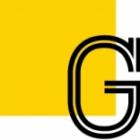Then I sat with interest to see what was going to happen at the launch of second report produced by the Tunisia Monitoring Group (TMG). To my amusement I saw a television camera zoom in the room and wondered who was covering the well guarded session. My curiosity led me to find out that it was the Tunisian government who was shooting the sessions and I wondered, why this particular session. I found out that the camera person did not even know how the information he was shooting was going to be used by the government.
As the meeting proceeded, I looked around and saw that the room was full of Tunisians who were either for or against freedom of expression as evidenced from the way they commented and asked questions on freedom of expression in Tunisia.
As I listened through the different presentations about freedom of expression, Tunisians would quickly attract the Chair's attention by putting up their hands to dispute the allegations that were presented by the people who went on a mission to check for violations of freedom of expression in Tunisia, the host of the World Summit on Information Society (WSIS).
The mood was tense in the room and some Tunisians spoke in voices of bitterness and anger, making it clear that there were two different camps in the room. Then my thoughts gathered and a quick search in my memory reminded me of a session I had earlier attended in the day where there was a discussion on the liberty of media in the Arab world. The session was also on a larger scale talking about the Tunisian situation.
Launching the report of the mission in Geneva, at the World Summit on Information Society (WSIS) PrepCom III, Luckson Chipare, Director of Media Institute of Southern Africa (MISA) said he was not going to be surprised if members of the mission were not allowed to attend the second phase of the summit.
Can you imagine, this is a WSIS preparatory meeting and mainly it was Tunisians who asked or made comments in this session?
To my greater amusement, a Tunisian woman seated next to me whispered in my ear and said "I feel bad that people from my country should behave like this. You see these people must have been paid by government to defend the situation on freedom of expression in Tunisia". The Tunisia Monitoring Group report is correct, there is no freedom of expression in Tunisia she said.
Meanwhile, the wife of recently imprisoned lawyer Mohamed Abbou, Samia Abbou expressed her disappointment with the way her husband's case was handled by her government and she called for help from the international community. Like other women with an imprisoned husband, Samia has to undergo the hardship of supporting her three children in all their daily needs especially now that the family bread winner was imprisoned.
After she spoke, it was normal to feel and be sympathetic about how her way of life can change following her husband's imprisonment. Some people do not feel the same way and did not see the pain of what she was going through in an effort to bring justice to the fore. Some Tunisians responded in high pitched voices and accused her husband of defamation among other things as he has been charged by the court.
At the same time, the session heard Tunisian journalists testify that they operate in an environmental that has no freedom of the press which they said was synonymous with freedom of expression.
During the session I had a question that I never got a chance to ask. As a journalist who will covering the WSIS in Tunisia, I was interested in my freedom and in what I should expect especially as woman journalist?
What is freedom of expression for the media if even publishing on the wide wide web can threaten one's life?
- 4127 views







Add new comment